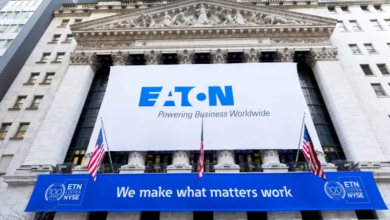“Nigeria’s Economic Resurgence: Surging Foreign Investor Demand and Remittances Signal Success of Reforms”

Last month witnessed a substantial upswing in foreign investor demand for Nigerian assets, coupled with a remarkable surge in remittances from citizens living abroad. These positive trends are attributed to the ongoing reforms initiated by President Bola Tinubu’s administration, which are evidently starting to yield dividends.
READ: Navigating Amsterdam’s Waterways: A Canal Cruise Experience
Nigeria
According to Hakama Sidi Ali, a spokesperson for the central bank, foreign portfolio investor asset purchases in February surpassed the $1 billion mark. This notable achievement contributes to a cumulative total of at least $2.3 billion in receipts for the year thus far. To put this into perspective, the entirety of 2023 saw foreign portfolio investor asset purchases amounting to $3.9 billion, underlining the significant acceleration in investor interest and confidence.
Simultaneously, the remittance landscape experienced a remarkable transformation, with overseas remittances surging over fourfold to reach $1.3 billion in February compared to the previous month. This surge in remittances underscores the growing financial connectivity between the Nigerian diaspora and their home country, reflecting increased economic activities and confidence in the reforms being implemented.
The positive momentum in foreign investor asset purchases and remittances is indicative of the success of President Bola Tinubu’s administration’s reforms. These measures, aimed at enhancing economic stability and attractiveness for foreign investors, are evidently gaining traction and instilling confidence in both local and international stakeholders.
The surge in foreign portfolio investor asset purchases is a testament to the renewed interest and confidence in Nigeria’s financial markets. As investors seek lucrative opportunities, the positive economic indicators and policy reforms implemented by the government contribute to positioning Nigeria as an attractive destination for foreign capital. The $2.3 billion in foreign portfolio investor asset purchases in the early months of the year already represents a significant portion of the total for the preceding year, indicating a robust and accelerating trend.
On the remittance front, the fourfold increase in overseas remittances is a promising sign for Nigeria’s economic resilience and the financial well-being of its citizens. Remittances play a vital role in supporting households, contributing to increased consumption, and bolstering the overall economy. The surge in remittances reflects the diaspora’s confidence in the economic direction of the country, as well as the positive impact of policies facilitating seamless fund transfers.
These developments highlight the interplay between policy reforms, investor sentiment, and the diaspora’s contribution to the economy. President Bola Tinubu’s administration’s commitment to creating an enabling environment for economic growth and foreign investment is evidently gaining traction. The surge in foreign investor demand and remittances not only signifies a vote of confidence in Nigeria’s economic prospects but also underscores the effectiveness of the ongoing reforms in attracting capital and fostering financial resilience.
As Nigeria continues on this positive trajectory, it will be crucial for the government to sustain and build upon these achievements. Consistent implementation of reforms, addressing potential challenges, and fostering an environment of transparency and stability will be key in maintaining and further enhancing investor confidence. Additionally, leveraging the positive momentum in remittances can contribute to sustained economic growth and improved livelihoods for citizens.
In conclusion, the surge in foreign investor demand for Nigerian assets and the substantial increase in remittances are indicative of the positive impact of President Bola Tinubu’s administration’s reforms. These developments underscore the growing confidence in Nigeria’s economic trajectory and highlight the importance of sustained efforts to create a conducive environment for investment and financial resilience.




